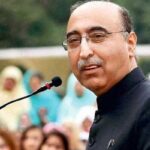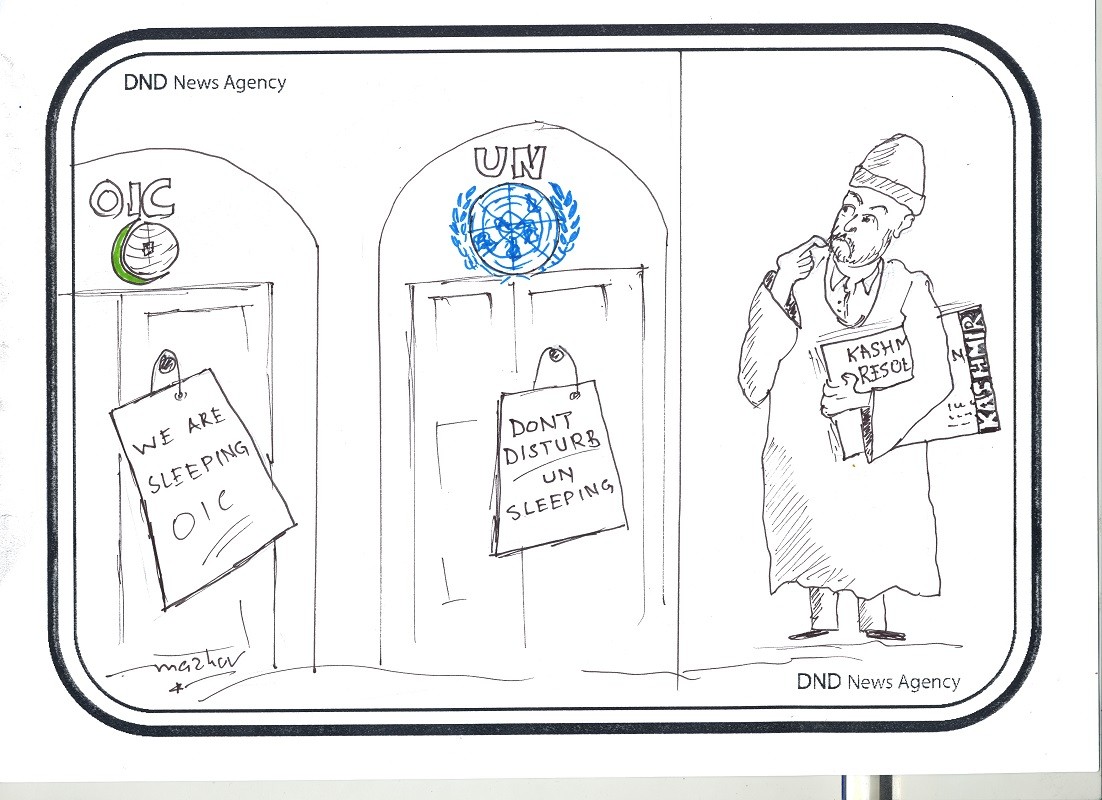By Ambassador Abdul Basit

On 5 August last year, India stripped the occupied Jammu and Kashmir of its special status by revoking articles 370 and 35A from the Indian constitution.
The so-called world’s largest democracy did that not only in violation of 11 resolutions of the United Nations on Kashmir but also Articles 3 and 68 of its own constitution. For the first time in India’s history since 1947, a state was split not into two states but two Union Territories and that, too, without the express consent of the state assembly.
The BJP government under Prime Minister Narendra Modi arrogantly declared that it had fulfilled its electoral promise by removing the long-standing constitutional aberration, for Jammu and Kashmir was an integral part of India and must be treated at par with the other Indian States and Union Territories. One would like to know as to which other State in India had a special status like Jammu and Kashmir and which other State was treated the way Jammu and Kashmir had been and, is being, treated.
The Reorganization of the Jammu and Kashmir Act, which came into effect on 31 October 2019, will, therefore, continue reminding the people, who strongly believe in democracy and human rights, of how shallow the Indian democracy is that has touched new lows. The new domicile rules will turn IOK into a Hindu-majority state sooner than one could imagine.
It is also hugely disappointing that India’s civil society while raising questions about the ongoing communication blackout remains by and large reticent about the unconstitutional steps taken by the Indian parliament. And it is better not to talk about the Indian media, which is now in large measure owned by Corporate India and the latter would not do anything that invites the ire of the votaries of Hindutva represented by the BJP and its mother organization, the RSS.

The role of the Indian Supreme Court on Kashmir is also far removed from the principles of justice. Not only is it using dilatory tactics on umpteen petitions against the revocation of the articles but also looking the other way on the continuing oppression against Kashmiris by close to one million security forces deployed in Indian Occupied Kashmir (IOK). The draconian laws such as the Armed Forces Special Powers Act, Public Safety Act, and Disturbed Areas Act give them untrammeled powers to kill and maim innocent Kashmiris with impunity. Even the discovery of mass graves in IOK could not jolt the Indian Supreme Court out of its repulsive indifference.
The first thing Islamabad urgently needs to do is to appoint Special Envoy on Jammu and Kashmir, as it recently did in case of Afghanistan
As for the international community, its insouciance on Kashmir is equally criminal. They are more concerned about their economic and commercial interests rather than the 12 million Kashmiris who have been living in grisly occupation for over seven decades.
Twitter diplomacy cannot be a substitute for a comprehensive strategy
From the OIC to the UN, we have seen such a brazen show of callousness that nothing was done to take India to the task. The UN Human Rights Council could not convene a special session to even discuss the rapidly deteriorating human rights situation in IOK much less to adopt a resolution against India’s continuing state terrorism against Kashmiris.

Pakistan being one of the major stakeholders in the Jammu and Kashmir dispute cannot be complacent about the way things are. It is not enough to make strong statements and expressing solidarity with Kashmiris; Twitter diplomacy cannot be a substitute for a comprehensive strategy. Unless Pakistan puts its own house in order and gets thoughtful about Kashmir, there is no realistic possibility of pushing India towards finding a fair solution to the dispute in accordance with the aspirations of Kashmiris.
The first thing Islamabad urgently needs to do is to appoint Special Envoy on Jammu and Kashmir, as it recently did in case of Afghanistan. The special envoy should be appointed for three years mandated to devise a holistic strategy on Kashmir, covering both its internal and external dimensions. The Kashmir Cell, established after 5 August last year has long lost its utility. Neither the prime minister nor the foreign minister can be expected to focus on Kashmir the way it deserves given that their platters are already full.
As for the Parliamentary Kashmir Committee, it is also atrophying in the absence of a well-thought-out strategy. Similarly, overseas Pakistanis and Kashmiris are not being mobilized enough to build pressure on their respective countries. In short, efforts being made by Pakistan can best be described as incoherent and episodic to yield tangible results. The sooner Islamabad appoints a special envoy the better it would be. And a person so appointed should be well qualified for the job; an individual who not only knows about ins and outs of Kashmir but is also well-versed in the art of diplomacy.
Another important step that needs to be taken is to amend Article 2 of the 1974 Interim Constitution of Azad Jammu and Kashmir (AJ&K) to extend the bailiwick of the Muzaffarabad government to also IOK.
This will adequately take care of the ongoing discussion of whether or not Kashmiris living in IOK form a government in exile of their own. This question will become irrelevant once Article 2 is amended as proposed. The President of AJ&K should then appoint Plebiscite Advisor as provided for in Article 11 of the Interim Constitution. The Advisor should immediately start compiling data of Kashmiris in IOK, AJ&K and around the world who would be eligible to vote in a United Nations-supervised plebiscite.
Kashmiris have given enormous sacrifices to get freedom from the cruel Indian yoke. They are willing to continue fighting till the very end. Will the world wake up to stop the ongoing massacre of Kashmiris? This looks difficult unless Pakistan puts its money where its mouth is.
Today, Pakistan must recommit itself utterly to the Kashmir cause. It is about time to move from optics to substance. Otherwise, we would end up marking another day on Kashmir on 5 August every year à la 5 February, 13 July, and 27 October.
Kashmir is not about marking days but winning for Kashmiris their inalienable right to self-determination as enshrined in the UN Charter and the Universal Declaration of Human Rights. India is a hubristic power. But no power however preponderant can keep people under occupation forever. Kashmiris, given their indefatigable resolve, are destined to win against India’s occupation no matter what.

